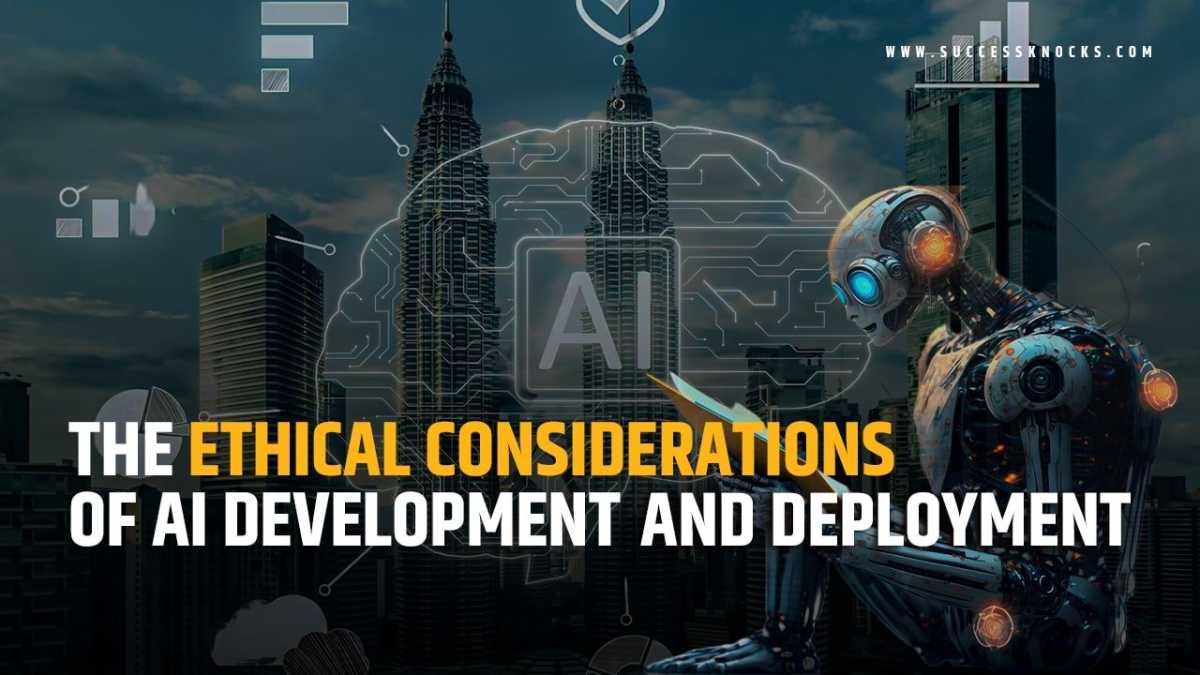Features
Ethical Considerations In AI Development

Artificial Intelligence (AI) has become increasingly integrated into various aspects of our lives, from personalized recommendations on streaming platforms to autonomous vehicles. However, this rapid advancement in AI technology raises significant ethical considerations that must be carefully addressed. In this article, we will explore some of the key ethical considerations in AI development.
1. Bias and Fairness
One of the primary concerns in AI development is the presence of bias in algorithms. AI systems are trained using historical data, and if this data contains biases, such biases can be perpetuated and amplified by the AI. This can lead to unfair treatment and discrimination towards certain individuals or groups. It is crucial to consistently evaluate and mitigate biases during the development and training phases to ensure fairness and equal opportunities for all.
2. Privacy and Data Protection
AI relies heavily on vast amounts of data to perform its tasks effectively. However, this raises concerns regarding privacy and data protection. Developers must ensure that user data is collected and used ethically, with appropriate consent and in compliance with legal regulations. Additionally, AI systems should incorporate measures to protect sensitive user information from unauthorized access and misuse.
3. Transparency and Explainability
AI algorithms can be highly complex, making it difficult for users to understand how decisions are made. Lack of transparency and explainability can lead to mistrust and skepticism towards AI systems. It is crucial to develop AI models and algorithms that are explainable and transparent, allowing users to understand the decision-making process. This will enable users to make informed choices and hold AI systems accountable.
4. Accountability and Liability
As AI systems become more autonomous and make decisions that impact human lives, the issue of accountability and liability arises. Determining who is responsible for AI errors or harm caused by AI systems can be challenging. Establishing clear lines of accountability and liability is necessary to ensure that developers, users, and organizations are held responsible for the consequences of AI actions. This can involve legal frameworks and regulations that outline the responsibilities and liabilities of different stakeholders.
5. Job Displacement and Ethical Responsibilities
The integration of AI technology can lead to changes in the job market, potentially displacing certain job roles. It is essential for organizations and society as a whole to consider the ethical responsibilities when implementing AI systems that may result in job losses. This can involve retraining and assisting individuals affected by automation, ensuring a fair transition to new employment opportunities.
6. Ensuring Human Control
While autonomous AI systems can offer numerous benefits, maintaining human control is critical. Humans should have the ability to override or intervene in AI decisions when necessary. Defining ethical boundaries and incorporating fail-safe mechanisms in AI systems is crucial to prevent unintended consequences or misuse of AI technology.
7. Global and Societal Impact
The development and deployment of AI technology can have far-reaching effects on a global and societal scale. It is important to consider the potential impact on cultural, social, and economic aspects of different communities. Ensuring that AI benefits are distributed equitably and considering diverse perspectives during the design and development phases is essential for avoiding further inequalities and disadvantages.
Conclusion
As AI continues to advance and become more ingrained in our lives, addressing the ethical considerations involved in its development becomes increasingly important. By proactively considering issues such as bias, privacy, transparency, accountability, job displacement, human control, and societal impact, we can contribute to the responsible and ethical development of AI, ensuring that it benefits humanity as a whole.










